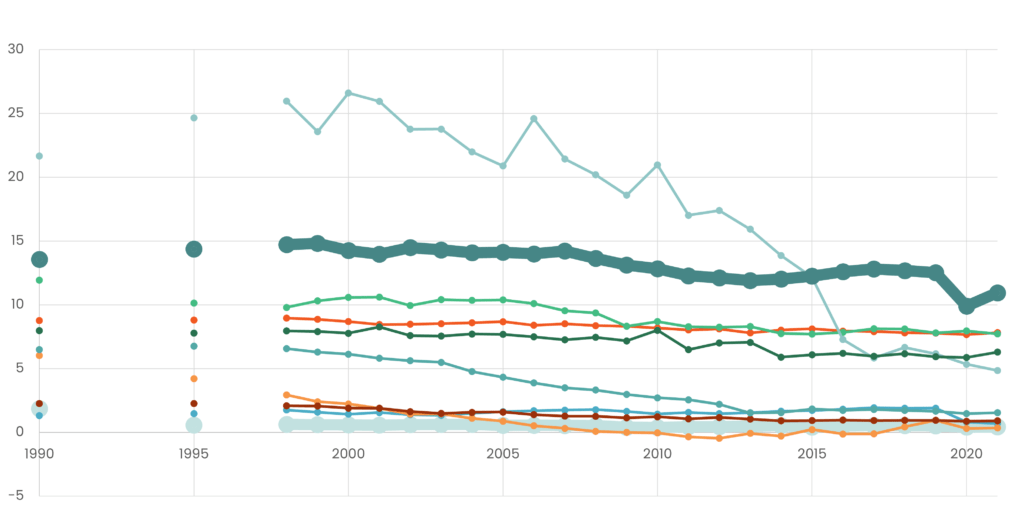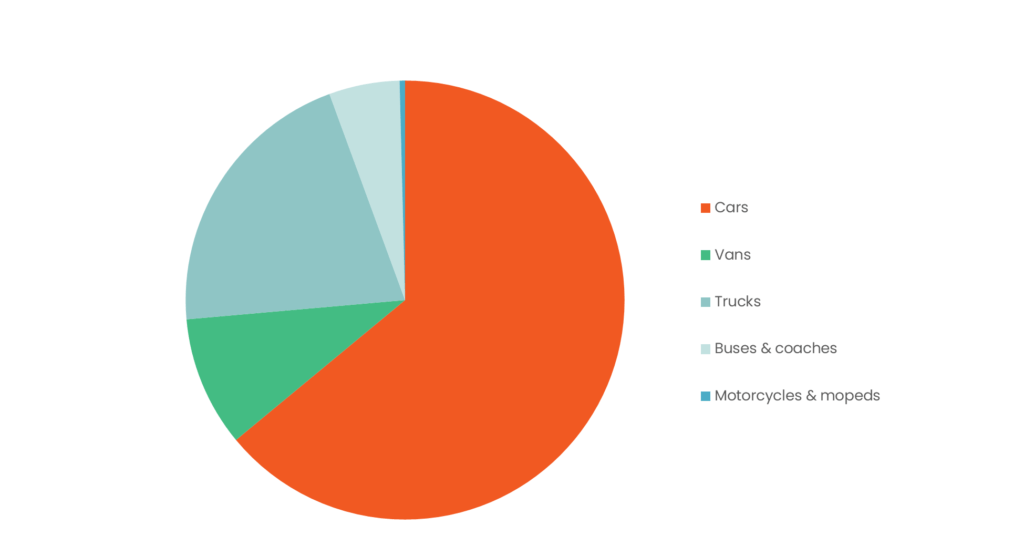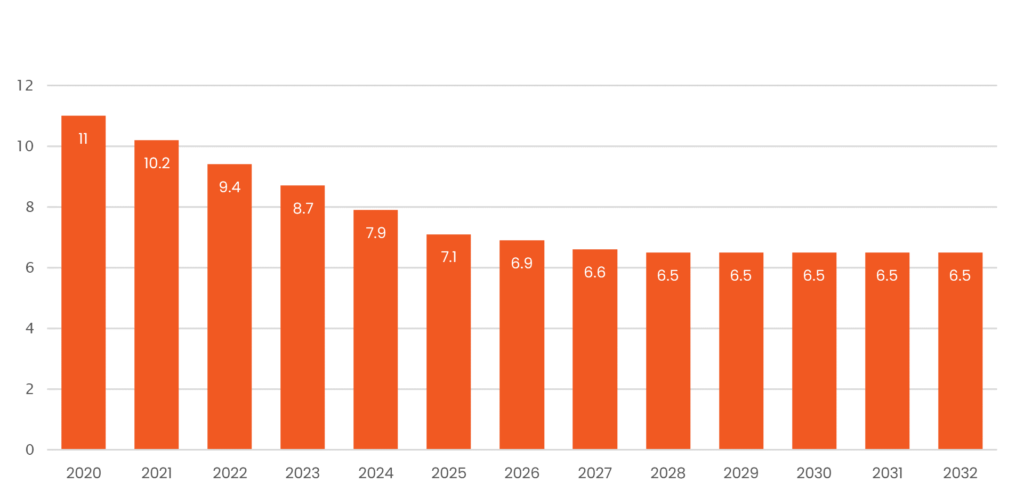Transport
Emissions from the Transport sector cover emissions from domestic aviation, road transport, railways, domestic navigation, fishing and aircraft support vehicles, and international aviation and shipping. Emissions fell 26% between 1990 and 2021, with a significant dip during the COVID-19 pandemic.
Read this chapter
Scotland’s territorial emissions 1990-2021

Emissions in MtCO2e from domestic transport (bold teal line) and international aviation and shipping (bold aqua line) 1990-2021, showing a combined fall of 26%
Our current transport system imposes a range of external costs on society: environmental – climate change, air and noise pollution, damage to wildlife; social – community severance, poor health due to physical inactivity, illness and injury, serious injury and death due to road traffic accidents, and economic – congestion, road repair costs and health costs. These impacts are not felt equally, with the poorest communities experiencing them worst.
Road transport emissions 2019

Transport climate emissions in Scotland by vehicle type in 2019
Road transport overtook the energy industry as the largest sector of emissions in 2015 and, until COVID, emissions were showing little sign of reducing. COVID-related changes caused a temporary drop of more than 20% in emissions.152 In 2019 – the last pre-COVID-19 year – 64% of road transport emissions came from cars.
There are three million road vehicles in Scotland, each doing an average of 10,000 miles per year, and creating a total of around 10 MtCO2e per year. The majority source, cars, have an average age of 8 years. This helps explain why technical innovation is relatively slow in driving change.
The Scottish Government is doing a lot to promote electric vehicles. They are clearly a part of the solution, but still create congestion and air pollution (from tyre and brake dust), continue car-based planning and do nothing to contribute to the Scottish Government commitment to reducing car-km by 20% by 2030. Design of access and charging infrastructure for EVs needs to include the participation of disabled people’s organisations.
Road transport imposes costs on society through congestion (approx £700m in 2019), crashes (~£900m in 2019) and building car-based infrastructure. The Drawdown Project estimates that a global move to more walkable cities could reduce emissions by around 3,000MtCO2.153
COVID-19: Scotland’s transport and travel trendsTransport Scotland, 2021, https://www.transport.gov.scot/media/50410/covid-19-trendsin-transport-and-travel-in-scotland-during-the-first-year-of-the-pandemic.pdf
The Drawdown Project, 2023, https://drawdown.org/solutions/table-of-solutions
The Climate Change Plan update154 lists 8 outcomes for transport, with policies and proposed policies which are supposed to achieve them:
Outcome 1: To address our overreliance on cars, we will reduce car kilometres by 20% by 2030
Outcome 2: We will phase out the need for new petrol and diesel cars and vans by 2030
Outcome 3: To reduce emissions in the freight sector, we will work with the industry to understand the most efficient methods and remove the need for new petrol and diesel heavy vehicles by 2035
Outcome 4: We will work with the newly formed Bus Decarbonisation Taskforce, comprised of leaders from the bus, energy and finance sectors, to ensure that the majority of new buses purchased from 2024 are zero-emission, and to bring this date forward if possible
Outcome 5: We will work to decarbonise scheduled flights within Scotland by 2040
Outcome 6: Proportion of ferries in Scottish Government ownership which are low emission has increased to 30% by 2032
Outcome 7: By 2032 low emission solutions have been widely adopted at Scottish ports
Outcome 8: Scotland’s passenger rail services will be decarbonised by 2035
The Scottish Government’s plan is for steady year-on-year emissions reductions to the middle of the decade but then no further reductions at all from 2028 to 2032, despite this being the period when you would expect the 20% reduction in car-kms and ban on fossil fuel car and van sales to be having their biggest impact.
Transport emissions 2020-2032 (MtCO2e)

Expected climate change emissions from all forms of transport 2020-2032

